Albany Deptford Babies Hospital
25 Breakspears Road, Deptford, SE4 1XP
Medical dates:
Medical character:
1913 - 1940
Specialist
The Babies Hospital opened in 1913 in two cottages (both over 300 years old) in Albury Street, Deptford. Previously the Babies Centre based at the Albany Institute (see below), the Hospital provided long-term care and treatment for weak and rachitic infants, whose unemployed parents were far too poor to provide them with adequate nourishment.
In 1929, by which time the Albury Street premises had become cramped, Princess Alice, Countess of Athlone, presented a house in Breakspears Road next to the railway line, for the purpose of extending the Hospital. The gift also commemorated her silver wedding and the foundation of the Deptford Fund by her mother, the late Duchess of Albany.
Following alterations to the building, the Albany Deptford Babies Hospital was officially opened in 1933 by the Duchess of York (who later became Queen Elizabeth The Queen Mother). The Hospital had 22 beds as well as accommodation for two breastfeeding mothers and their babies. A large Out-Patients Department had been built in part of the large garden. Ultraviolet ray treatment was offered to both in- and out-patients. In 1934 an open-air ward was opened.
During WW2 the incessant daylight bombing raids meant that the babies had to spend most of their time in the basement shelters. Cots could not be left outside because of the dangers of flying shrapnel. The lack of space and poor ventilation in the shelters had an adverse effect on the children and their health deteriorated; it was impossible to provide adequate treatment. Of the 24 beds available in 1939, only 16 were open in 1940. With the daylight raids the number of out-patients had fallen greatly and, by September, attendances had all but ceased.
On 29th October 1940 the Hospital was closed temporarily for the duration of the war. Most children were sent home, but three were evacuated to the War Nursery run by the Church of England Waifs and Strays Society at Wistow Hall in Newton Harcourt, Leicestershire.
No sooner had the Hospital been evacuated, then in the following week on 7th November, the Breakspears Road building was badly damaged by a bomb. Incendiary bombs hit the Out-Patients Department and the Nurses' Home. A week later the Hospital was bombed again, destroying the Out-Patients' Department.
All the buildings were scheduled for demolition. The foundations became an Emergency Water Supply and the large garden was used as Warden's allotments.
The Hospital never reopened after the war.
|
During WW2 Lord and Lady Cottesloe lent part of their home at Wistow Hall to the Waifs and Strays Society for use as a War Nursery for delicate children. The Nursery had 34 beds; preference was given to infants from the Deptford area. In 1942 Lord and Lady Cottesloe required the house for other purposes and, in June, the remaining 17 children were bussed to Adbury House, near Newbury, which the Ministry of Health had requisitioned. Alterations to the new premises were completed in September, when 18 new cases were admitted. Unfortunately two of them brought measles with them, so the Nursery was placed in quarantine. By 1943, the Jubilee year of the founding of the Deptford Fund, 33 children were in-patients in Adbury House, their mothers unavailable because they were working or were dead. In 1944 there were 36 beds, but the flying bomb raids required that the emergency beds were also used, bringing the total to 42 beds. The Nursery closed at the end of the war. |
|
Present status (July 2009) |
|---|
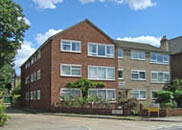
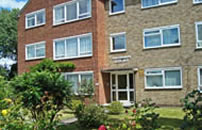
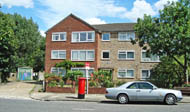
Hadrian Court occupies the sites of Nos. 25 and 27 Breakspears Road. No. 25 would have been on the left hand side where the driveway and the red brick part of the building are now located.
The Albany Institute
In the early 1890s the Duchess of Albany (1861-1922) developed an interest in Deptford, having received a great ovation on her first visit there. To get to know the area better she was taken taken one day to visit the Deptford Cattle Market. There she was appalled to see girls engaged in the "most degrading work under the worst possible conditions".
The Duchess was determined not to rest until girls were no longer employed at the Cattle Market, but the 'gut girls' were of the roughest type and completely untrained for any domestic occupation. She collected money from like-minded philanthropic friends and established the Deptford Fund. In 1894 the Duchess rented a small house in Albury Street and set up a Girls Club.
Her equerry, Captain Tarleton, donated a site in Creek Road and in July 1898 the Prince of Wales (later King Edward VII) laid the foundation stone for the Albany Institute.
The Institute was officially opened in October 1899 by the Prince and Princess of Wales. Training was given to the girls in laundry work, cooking, housework, dressmaking and toymaking.
The Duchess knew all the girls personally. When some got married a Married Girls Club was formed and, later, a Babies Clinic (which later evolved into the Babies Hospital). The Institute became recognised as a Domestic Science Training Centre. The Married Girls Club was replaced by the Mothers Club. As the babies grew up a Boys Club was started in 1921 to complement the original Girls Club. As the mothers became grandmothers, a Grannies Club was set up, followed by one for grandfathers and, later, a Club for blind people too. During the unemployment years Training and Gymnasium Classes were held for young men.
During WW1 the Institute established a toy factory to provide employment for women whose husbands were away serving in the army.
At the outbreak of WW2 the basement gym was offered as an air-raid shelter. All the Clubs were closed as it was thought unwise for people to congregate together. For a short time the building was requisitioned by the army. After a few months the demand grew for the Clubs to be reopened. This they did, and carried on as usual.
By August 1940 the shelter was in constant use and a Shelter Canteen was started, which opened every evening. The LCC began a Londoners' Meals Service Breakfast Canteen from the shelter, which became so popular that a dinner service was added. The Albany Institute became a Third-Line Rest Centre, providing temporary care and accommodation during heavy air-raids. A Meals Service for Old-Age Pensioners was opened in cooperation with Deptford Social Service Centre, providing pensioners with a good dinner for 6d (less than 3p).
The activities of the Albany Institute continued after the war. It became famous in the 1970s as the Albany Empire. In 1978 the building was gutted by fire. It was demolished in 1981 as part of a road-widening scheme. Its site is now part car park and part new road.
A new Albany Institute was built in 1982 in Douglas Way as The Albany, a theatre and music venue for local community groups.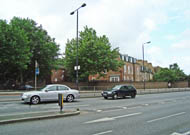
The site of the Albany Institute from across Creek Road. The Institute was on the corner of Lamerton Street, Albury Street and Creek Road.
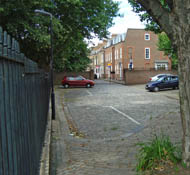
Looking west through the car park towards No. 45 Albury Street.
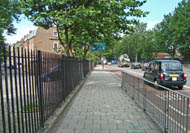
On the roadway looking west towards Albury Street.
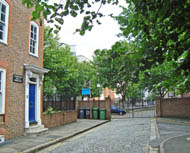
Looking east along Albury Street - No. 45 is on the left and the car park entrance can be seen in the centre.
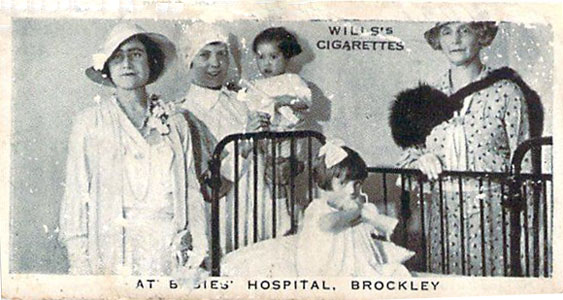
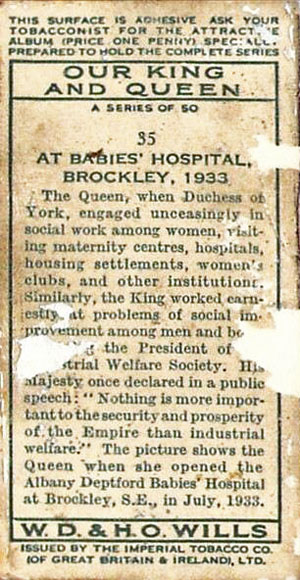
A Wills's cigarette card commemorates the opening of the Hospital in July 1933 by the Duchess of York (who became the Queen in 1936).
(Photograph by courtesy of D.S.P.)
References
http://rcnarchive.rcn.org.uk
www.nationalarchives.gov.uk
www.thealbany.org.uk